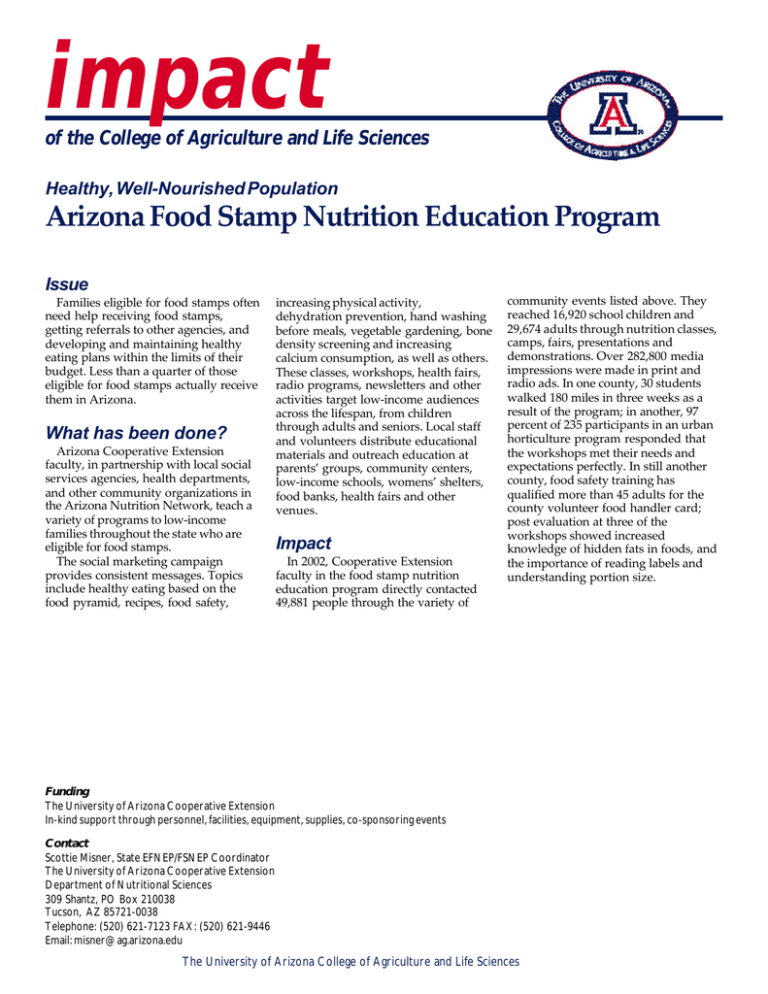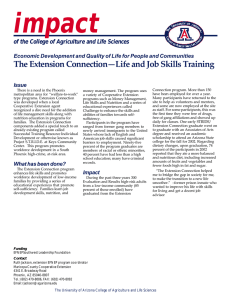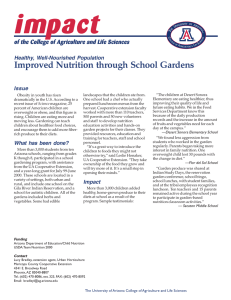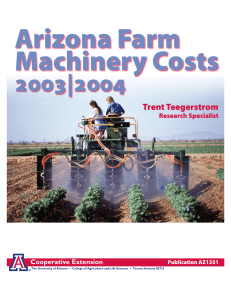impact Arizona Food Stamp Nutrition Education Program Healthy, Well-Nourished Population
advertisement

impact of the College of Agriculture and Life Sciences Healthy, Well-Nourished Population Arizona Food Stamp Nutrition Education Program Issue Families eligible for food stamps often need help receiving food stamps, getting referrals to other agencies, and developing and maintaining healthy eating plans within the limits of their budget. Less than a quarter of those eligible for food stamps actually receive them in Arizona. What has been done? Arizona Cooperative Extension faculty, in partnership with local social services agencies, health departments, and other community organizations in the Arizona Nutrition Network, teach a variety of programs to low-income families throughout the state who are eligible for food stamps. The social marketing campaign provides consistent messages. Topics include healthy eating based on the food pyramid, recipes, food safety, increasing physical activity, dehydration prevention, hand washing before meals, vegetable gardening, bone density screening and increasing calcium consumption, as well as others. These classes, workshops, health fairs, radio programs, newsletters and other activities target low-income audiences across the lifespan, from children through adults and seniors. Local staff and volunteers distribute educational materials and outreach education at parents’ groups, community centers, low-income schools, womens’ shelters, food banks, health fairs and other venues. Impact In 2002, Cooperative Extension faculty in the food stamp nutrition education program directly contacted 49,881 people through the variety of community events listed above. They reached 16,920 school children and 29,674 adults through nutrition classes, camps, fairs, presentations and demonstrations. Over 282,800 media impressions were made in print and radio ads. In one county, 30 students walked 180 miles in three weeks as a result of the program; in another, 97 percent of 235 participants in an urban horticulture program responded that the workshops met their needs and expectations perfectly. In still another county, food safety training has qualified more than 45 adults for the county volunteer food handler card; post evaluation at three of the workshops showed increased knowledge of hidden fats in foods, and the importance of reading labels and understanding portion size. Funding The University of Arizona Cooperative Extension In-kind support through personnel, facilities, equipment, supplies, co-sponsoring events Contact Scottie Misner, State EFNEP/FSNEP Coordinator The University of Arizona Cooperative Extension Department of Nutritional Sciences 309 Shantz, PO Box 210038 Tucson, AZ 85721-0038 Telephone: (520) 621-7123 FAX: (520) 621-9446 Email: misner@ag.arizona.edu The University of Arizona College of Agriculture and Life Sciences






